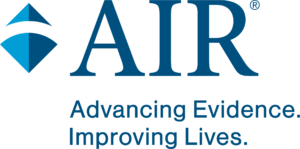In New Study, Principals Highlight Pandemic Innovations and How They Will Change Schools in the Future
NAESP releases first-of-its-kind research that shows the impact on the principal profession from 2020-2021 and what principals need to help students and schools recover and succeed.

October 27, 2021, Alexandria, Virginia—The National Association of Elementary School Principals (NAESP) and NAESP Foundation today launched Leaders We Need Now (LWNN), a series of three research briefs on how the unprecedented crises and turmoil in 2020–2021 have affected the work of principals and the impact these changes will have on the profession going forward.
The research series is the first of its kind to look at how responding to the pandemic, social injustice, and increased demands to address inequity has affected school leaders and the profession.
“For a century, NAESP has been a leader in advocating for and supporting elementary and middle-level school leaders,” says NAESP Executive Director L. Earl Franks, Ed.D., CAE. “Principals are the second-most influential school-based factor when it comes to student achievement, so to help students and schools recover we need to listen to principals and understand their needs. We saw the impact the pandemic was having on schools, but we wanted to know how it was affecting principals’ day-to-day lives and what it meant for the profession going forward. The findings of this research will be a driving force in how NAESP supports its members and for the policy changes we’ll seek to reflect a changed profession.”
The study, funded by The Joyce Foundation and conducted by the American Institutes for Research, consisted of 36 focus groups that met between April and June 2021. The groups were a geographically representative sample of NAESP membership, including 188 principals from 43 states.
The first brief of the series, Leaders in the Tumult: Schooling Innovations and New Perspectives From a Year Interrupted, was released today. In this report principals recount how their schools changed in 2020–2021 and reflect on which changes might endure. They anticipate that they will continue to use flexible staffing practices to hire and retain staff, including school nurses and school counselors; build partnerships with community and government agencies to help schools recover and strengthen mental health supports; and scale the use of remote instructional technology to supplement and extend learning. But principals also point to some ongoing challenges, such as future educator shortages due to low morale and early retirements, diversifying the teacher and principal pipeline, and healing fractured communities. Download the brief and executive summary.
The second brief in the LWNN series will examine the shifting priorities that confronted principals in 2020–2021, including addressing the mental health needs of students and staff, managing multiple crises simultaneously, and communicating with increasingly politicized communities during a time of ambiguity and uncertainty. It will further discuss how principals expect the ongoing impact of the pandemic and social justice efforts to change their work in the future as they refocus on curriculum, instruction, and assessment; equity and cultural responsiveness; school improvement; and professional capacity.
The third brief in the series will detail the policy actions that principals say are needed to address these new realities, help schools reset after the 2021–2022 school year, support students, and build better schools for the years to come. These actions include more funding for school mental health supports; investing in the educator workforce to address potential shortages; reformulating accountability metrics to assess how well schools are supporting the whole child; ensuring that long-term school funding streams are in place to address ongoing social justice efforts and pandemic recovery; and updating principal preparation and professional learning so leaders are better prepared to manage change and uncertainty in the future.
To download the first brief in the series, Leaders in the Tumult, go to www.naesp.org/LWNN.
About NAESP
![]()
Established in 1921, the National Association of Elementary School Principals (NAESP) leads in the advocacy and support for elementary and middle-level principals in the United States and internationally. NAESP supports principals as the primary catalysts for creating lasting foundations for learning through policy and professional learning, advocacy, programs, and resources for effective instructional leadership.
![]()
The NAESP Foundation, founded in 1982, is the tax-exempt, charitable arm of the National Association of Elementary School Principals and advances excellence, innovation, and equity in schools by endowing leadership and learning for principals for the benefit of all children. The NAESP Foundation takes an innovative approach to funding and partnerships, working cooperatively with businesses, universities, government agencies, and foundations to ensure that principals have the tools, resources and recognition they need to succeed. For more information about NAESP and the NAESP Foundation, please visit www.naesp.org.
About the American Institutes for Research (AIR)

Established in 1946, the American Institutes for Research (AIR) is a nonpartisan, not-for-profit organization that conducts behavioral and social science research and delivers technical assistance both domestically and internationally in the areas of education, health and the workforce. AIR’s work is driven by its mission to generate and use rigorous evidence that contributes to a better, more equitable world. With headquarters in Arlington, Virginia, AIR has offices across the U.S. and abroad. For more information, visit www.air.org.
About The Joyce Foundation

The Joyce Foundation is a nonpartisan private philanthropy that invests in public policies and strategies to advance racial equity and economic mobility for the next generation in the Great Lakes region. Joyce supports policy research, development, and advocacy in the six program areas: Culture, Democracy, Education and Economic Mobility, Environment, Gun Violence Prevention and Justice Reform, and Journalism. For more information about the Joyce Foundation, please visit www.joycefdn.org.




